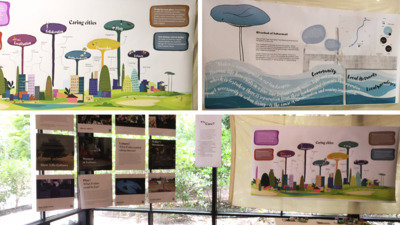A Study of Smart Cities for India
Ranjan, Shreya, Bhuva, Sneha, Nahar, Praveen and Thappa, Sahil (2022) A Study of Smart Cities for India. In: Proceedings of Relating Systems Thinking and Design, RSD11, 3-16 Oct 2022, Brighton, United Kingdom.
Preview |
Text
Ranjan_Study_Paper_2022.pdf - Published Version Available under License Creative Commons Attribution Non-commercial. Download (476kB) | Preview |
![Ranjan_Study_Gigamap_2022.png [thumbnail of Ranjan_Study_Gigamap_2022.png]](https://openresearch.ocadu.ca/4326/2.hassmallThumbnailVersion/Ranjan_Study_Gigamap_2022.png)  Preview |
Image
Ranjan_Study_Gigamap_2022.png - Published Version Available under License Creative Commons Attribution Non-commercial No Derivatives. Download (3MB) | Preview |
![Ranjan_Image3_2022.png [thumbnail of Ranjan_Image3_2022.png]](https://openresearch.ocadu.ca/4326/3.hassmallThumbnailVersion/Ranjan_Image3_2022.png)  Preview |
Image
Ranjan_Image3_2022.png - Published Version Available under License Creative Commons Attribution Non-commercial No Derivatives. Download (3MB) | Preview |
![Ranjan_Image2_2022.png [thumbnail of Ranjan_Image2_2022.png]](https://openresearch.ocadu.ca/4326/4.hassmallThumbnailVersion/Ranjan_Image2_2022.png)  Preview |
Image
Ranjan_Image2_2022.png - Published Version Available under License Creative Commons Attribution Non-commercial No Derivatives. Download (3MB) | Preview |
![Ranjan_Image1_2022.png [thumbnail of Ranjan_Image1_2022.png]](https://openresearch.ocadu.ca/4326/5.hassmallThumbnailVersion/Ranjan_Image1_2022.png)  Preview |
Image
Ranjan_Image1_2022.png - Published Version Available under License Creative Commons Attribution Non-commercial No Derivatives. Download (3MB) | Preview |
Abstract
What gives meaning to our life in urban scapes?
In this fast-developing world, our cities need to adapt fast to better technology, connectivity, and growth and somehow enable individual growth, i.e., cities have to be adaptive to their physical challenges and evolving aspirational needs. Today, there is increased migration towards the urban economic life (put migration data); at the same time, urbanisation is also travelling towards the hinterland, creating a loss of accountability and ownership of the ecosystem and its people. Everyone is getting connected faster, and the world is getting smaller, but something is amiss in this new way we live now.
What’s missing?
Sense of belonging
As the world shifts towards faster and digital, people get more out of touch with their ecosystems. People no longer know where their food comes from or how to build climate-resilient cities. There is gradual loss, even disinterest in knowledge sharing, because of broken trust networks. In the context of India, urbanisation has not taken into consideration contextual needs and knowledges, which has built opaque walls of development between people and the decision-making process that directly affects them.
Connectedness
Humans seek connectedness and they experience discomfort when they feel isolated from the larger ecosystem that they all are a part of. This includes the physical infrastructure, the natural ecosystem, the social fabric of the society, and how all of this combines to create a sense of belonging, responsibility, ownership, and connectedness. “The double role of living systems as parts and wholes requires the interplay of two opposite tendencies – an integrated tendency to function as part of a larger whole, and a self-assertive, or self-organizing tendency to preserve individual autonomy”.
How can we then establish this connectedness, and what does it mean in our fast-changing world where aspirations are ever-evolving?
| Item Type: | Conference/Workshop Item (Other) |
|---|---|
| Uncontrolled Keywords: | connectedness, smart cities, resilience, urbanisation, ownership, sense of belonging, ecosystem |
| Divisions: | Faculty of Design |
| Related URLs: | |
| Date Deposited: | 30 Apr 2024 14:10 |
| Last Modified: | 30 Apr 2024 14:10 |
| URI: | https://openresearch.ocadu.ca/id/eprint/4326 |
Actions (login required)
 |
Edit View |

 Lists
Lists Lists
Lists